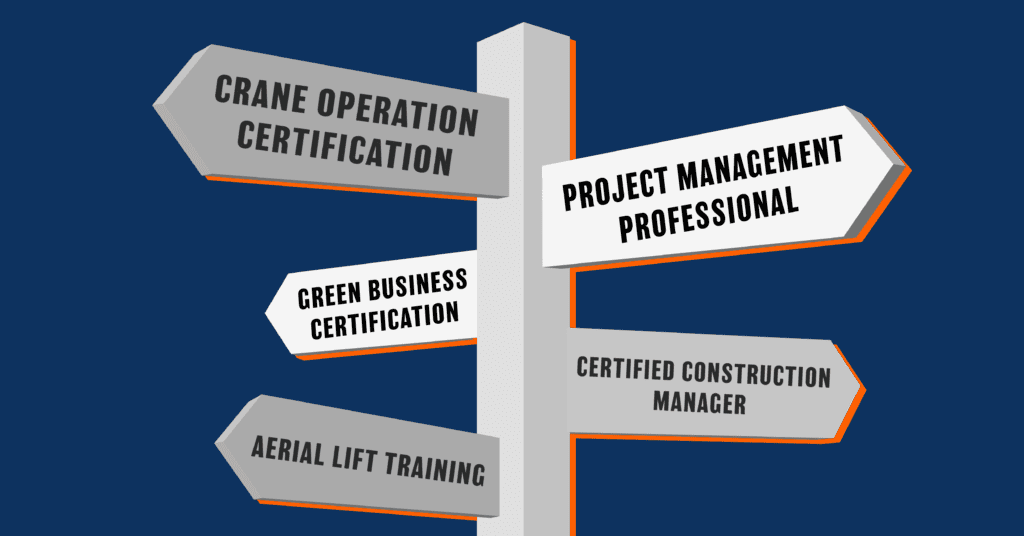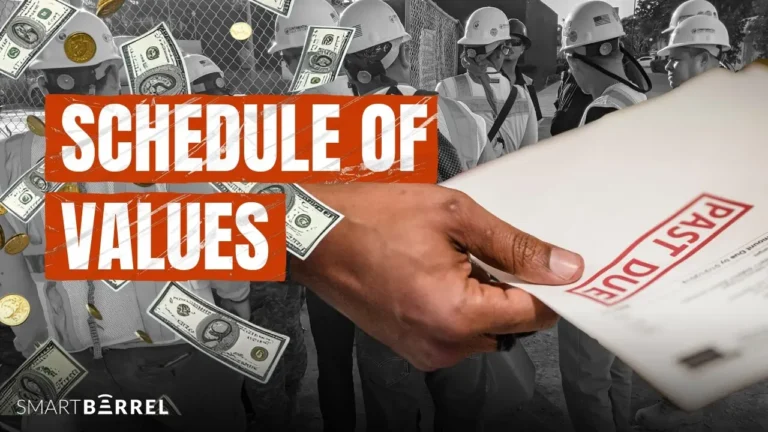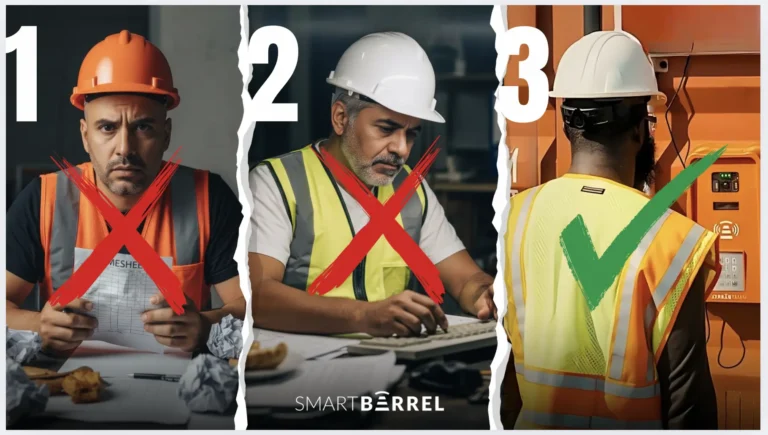While construction certifications are not a hard requirement for working in the construction industry (an apprenticeship is usually enough to get your foot in the door), proper education and training are prerequisites for most specialized positions.
If you already work in construction, you may be looking to move up. It is, after all, a trade with a plethora of opportunities. Career advancement not only boosts your salary but can give you a sense of fulfillment and accomplishment. Getting certified and attaining the right credentials will qualify you for skilled positions.
Whether you want to learn more about sustainable building and design or construction management, any contractor certification can be earned by anyone.
Here, we go over the best certifications to develop your construction career and how the SmartBarrel device can help verify training and certifications for a safer working environment.
How construction certifications advance your career
Even if you’re already an experienced professional, continuing your education shows prospective employers a willingness to learn and a commitment to constantly improving.
Not only is it beneficial for personal development, but certifications demonstrate dedication to your craft and allow you to stand out from other candidates by increasing your value as an employee. It’s evidence of expertise in a specific subject area.
Obtaining additional certifications opens new doors for career progression. And on the job, pre-existing knowledge and training can help you become a better team member by helping projects move along much more smoothly.
The 5 best construction certifications
1. Crane Operation Certification
The ability to safely and competently operate a crane on a job site can put you a step above the rest. This equipment is both common and crucial to construction sites.
The National Commission for the Certification of Crane Operators (NCCCO) issues various certifications that qualify you to operate specific types of cranes, including mobile cranes, tower cranes, and more. They also offer certifications for crane inspection and lift directing.
Testing includes written, and practical exams focused on performance and adhering to safety standards when working with or around cranes. Getting certified often involves multiple tests to ensure a thorough understanding of the equipment. Not including training costs, exam fees can vary from $50 to $420 for each test.
Having trained and certified operators ensures proper equipment handling to avoid potential accidents on the job.
2. Aerial Lift Training
Aerial lifts (also called boom lifts) are another piece of equipment commonly used on construction sites.
They have many uses, but to operate them, many job sites will require employees to have proof of certification to remain OSHA (Occupational Safety and Health Administration) compliant. Some employers may even cover the cost of lessons.
Being certified and trained in aerial lifts reduces the risk of injuries to the operator and surrounding workers, making it a useful skill and practical step in developing your construction career.
3. Green Business Certification (LEED)
Recent years have seen more emphasis on sustainable building practices. Green design and construction promote environmental friendliness and benefit long-term physical and sociological development.
Green Business Certification Inc. (GBCI) offers professional certification programs in Leadership in Energy and Environmental Design (LEED), which demonstrate proficiency in environmental building standards.
Many new to LEED and green projects start by earning a LEED Green Associate certification, which can then progress to other certificates, badges, and certifications, including a LEED AP with Specialty certification.
Getting a LEED certification shows a deep understanding of green practices and can position you as an environmental leader if you’re passionate about sustainability in construction.
The cost of these construction certifications can vary from several hundreds of dollars, but it’s an investment in your career development and a more sustainable future.
4. Project Management Professional (PMP)
Construction project management is a well-respected profession that prioritizes leading teams, encouraging productivity, and producing results.
A Project Management Professional (PMP) certification is one of the best certifications you can get if you’re looking to progress in the construction project management field. Issued by the Project Management Institute (PMI), obtaining a PMP involves taking an online proctored exam (it’s one of the few exclusive construction certifications online).
Before qualifying for the exam, you’ll have to first possess some form of a degree, prior experience in leading projects, and formal training in project management, which focuses on professional business settings, people skills, and developing processes. Once certified, you’ll have tangible proof that you possess the necessary skills to manage teams and lead the progress of projects.
It’s a notable accomplishment to work towards, as according to the PMI, professionals with a PMP certification benefit from a higher salary than those without it – up 25% higher.
5. Certified Construction Manager (CCM)
Becoming a construction manager can take some years, requiring a 4-year bachelor’s degree with construction management experience or several years in the field with management experience if you don’t possess any formal education. But it can be worth the time if you want to advance your career as a project manager or executive.
The Certified Construction Manager (CCM) certification, issued by the Construction Management Association of America (CMAA) and Construction Management Certification Institute, gives you the proper credentials to effectively manage construction projects.
Getting a CCM certification shows that you’re well-versed in safety, as well as the planning, designing, and running of projects. It demonstrates to both clients and executives that you’re up to date with the latest industry practices.
There are two types of CCM certifications:
-
The CMIT (Construction Manager-in-Training) for recent graduates
-
The CCM (Certified Construction Manager) for more experienced managers
According to the CMAA, those who have a CCM certification earn over 10% more than those who don’t, making this certification one of the top options for advancing your career.
How the SmartBarrel device verifies certification
Construction certifications can expand a worker’s options in the construction industry. Still, it’s important to renew certifications as needed and ensure an accredited and reputable institution grants your credentials.
With the SmartBarrel device and its integrations, you can access any relevant documentation and validate certifications to keep your job site compliant with safety regulations.
The SmartBarrel device verifies that all workers are qualified to be on-site, confirming that they’ve completed all the necessary safety training.
You can also track who’s on the construction site in real-time, so you can ensure that only certified personnel have access. Additional safety and security features make the SmartBarrel device an intelligent construction solution.
Ready to take your job site to the next level? Request a demo with SmartBarrel today!






